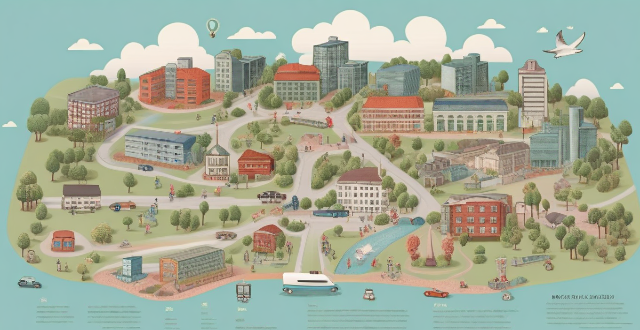The article discusses how climate change is a significant driver of human migration and refugee crises worldwide. It affects not only environmental stability but also socio-economic structures and geopolitical dynamics. The impact of climate change on migration patterns includes direct environmental displacement, indirect socio-economic effects, and geopolitical consequences. The challenges of adaptation and resilience include urbanization pressure and integration difficulties. International responses include policy development, humanitarian aid, and funding for adaptation. The article concludes that the future will likely see an increase in climate-related migration unless significant efforts are made to curb greenhouse gas emissions and prepare vulnerable populations for the changing climate.

The Impact of Climate Change on Migration Patterns and Refugee Crises Worldwide
Climate change, a persistent alteration in global climate patterns, has emerged as a significant driver of human migration and refugee crises. Its influence is multifaceted, affecting not only environmental stability but also socio-economic structures and geopolitical dynamics. Here's a detailed exploration:
Direct Environmental Displacement
- Sea-Level Rise: Coastal communities around the world are facing displacement due to rising sea levels, particularly in low-lying island nations and coastal cities.
- Extreme Weather Events: Increased frequency and intensity of hurricanes, typhoons, floods, and droughts force residents to flee their homes in search of safety.
- Agricultural Decline: Changes in precipitation patterns and temperature extremes make traditional farming practices unsustainable, leading farmers to abandon their lands.
Indirect Socio-Economic Effects
- Food Insecurity: Droughts and failed harvests contribute to scarcity of food resources, prompting people to move to areas with more reliable access to food.
- Economic Downturn: As natural resources become scarce or degraded, economies dependent on agriculture, fishing, and tourism suffer, pushing populations to seek livelihoods elsewhere.
- Health Risks: Spread of waterborne and vector-borne diseases in new regions can cause population movements as people seek healthier environments.
Geopolitical Consequences
- Resource Conflicts: Competition over dwindling water supplies and arable land can exacerbate regional conflicts, creating refugees.
- Border Disputes: As climate impacts vary between countries, some may expand their territories into less affected regions, causing tensions and displacement.
Adaptation and Resilience Challenges
- Urbanization Pressure: Climate migrants often move to urban centers seeking better opportunities, which can strain infrastructure and lead to the growth of slums.
- Integration Difficulties: Relocation to new communities can result in cultural and economic challenges, especially without adequate support systems.
International Responses
- Policy Development: International agreements like the Paris Agreement aim to mitigate climate change and its effects, including migration.
- Humanitarian Aid: Organizations provide relief and support for displaced persons and work on integrating them into new communities.
- Funding for Adaptation: Financial mechanisms are being developed to help vulnerable countries adapt to climate change and reduce migration pressures.
Looking Ahead
The future will likely see an increase in climate-related migration unless significant efforts are made to curb greenhouse gas emissions and prepare vulnerable populations for the changing climate. Adaptation strategies, such as building resilient infrastructure and improving early warning systems, are crucial steps toward managing this complex issue.
In summary, climate change acts as a "great accelerator" of migration patterns and refugee crises worldwide, challenging the international community to respond with urgency and solidarity.